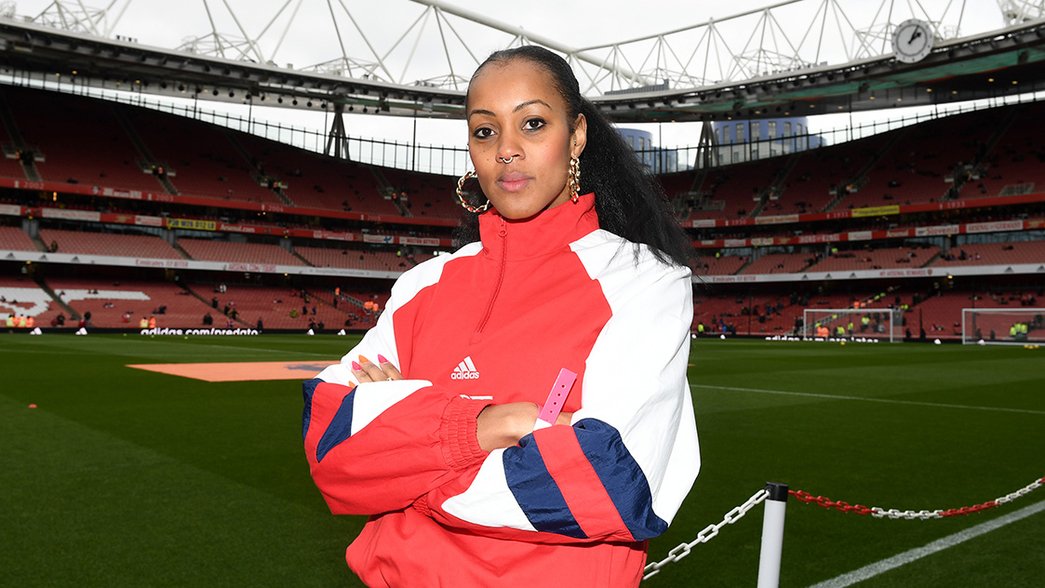On the 12th anniversary of the start of the Syrian War, Coaching for Life, a football programme that builds sustainable resilience in children living in the Za’atari refugee camp in Jordan, continues to have a profound positive impact.
Using a blueprint developed over 38 years of Arsenal in the Community’s work in north London, combined with Save the Children’s experience in conflict and humanitarian crises, Coaching for Life uses the power of football to build a sense of belonging and improve the physical, mental, and emotional wellbeing of children.
Launched in Za’atari in 2018 – one of the world’s most populous refugee camps which hosts around 80,000 people, more than half of whom are children – Coaching for Life focusses on supporting children and their families who fled their homes since the outbreak of the Syrian war in 2011.
A new film launched today tells the stories of Jana and Ward, Syrian refugees who fled to Jordan with their families to set up a new life in the camp. Click the play button above to discover their journey.
Meet Jana
Jana is a 13-year-old girl from Dar’a, Syria, who lives in Za’atari camp following the conflict in her hometown. Jana’s commitment to Coaching for Life means she travels by bike across the camp to attend the sessions. A shy and quiet girl, before joining the programme, Jana found it hard to express her emotions and opinions.
“I have lived in Za’atari for 10 years. We came here after the war,” Jana says in the film.
“Whenever there was aircraft, I would get scared by the noise. So we came here. My father got us here.
“I was so happy I signed up with Arsenal. When I play football, I feel happy. I feel full of energy and optimism,” added Jana.
Jana’s mother spoke about arriving in Jordan and the impact of Coaching for Life on her daughter. “We had nothing at all. We just escaped to save ourselves with our IDs only. We got here, we lived in tents, and we suffered.
“Coaching for Life changed Jana. 180 degrees, it changed my daughter. I think she started to love life again. It was like she had been dead, a body with no soul, but suddenly she started to love life, to love people.”
Meet Ward
Ward is 20 years old and has lived in the camp since 2012. After participating in Coaching for Life, he wanted to become a junior coach so he could support other children in the camp. When he turned 18, he began to work for Save the Children as an assistant coach.
Ward’s mother talks about leaving Syria back in 2012, “We left Syria to come here. The strikes, the horror and fear. We were worried about the children, and we left with them.”
Ward added, “When we came here, the situation changed. We left our friends. Some didn’t come with us, and some died.
“After we got into this programme, we learnt how to build relationships on the pitch and how to make decisions.”

Reflecting on five years of Coaching for Life, Vinai Venkatesham, CEO of Arsenal, said:
“The stories we hear from children and their families in Za’atari shows the power football has to transform lives in our communities worldwide.
“We've taken the work we’ve developed over nearly 40 years with our north London community to support young children who’ve fled from the Syrian war, it’s inspiring to see the effect we can have.
“None of this would be possible without the Arsenal family coming together to provide a sense of belonging around the world.”
Speaking about the evolution of Coaching for Life, Mairead King, Director of The Arsenal Foundation, added:
“Over the next five years, our aim is to achieve long-term transformative and sustainable change for children in the Za’atari camp. To reflect this ambition, Coaching for Life has evolved to take into consideration the challenges facing the Za’atari community today, lessons learned from the last five years, and children’s voices to ensure their experiences are truly understood.”
“This includes making the programme sustainable by training more coaches, introducing mini-football leagues so there are more opportunities for children to participate, focusing on greater diversity by including children with disabilities, and having achieved gender equity on the programme, moving to a gender transformative approach by including boys and men in the conversation on the challenges that the girls and women face in the camp.”
An independent evaluation commissioned by The Arsenal Foundation and Save the Children to better understand the impact of Coaching for Life showed several positive outcomes that have supported improved mental health and psychosocial benefits among the participants:
- Close to 90% of participants said they always felt safe as part of the programme
- More than 90% felt that there was often or always an adult they trusted, who listened to them, told them when they did a good job, or really cared about them
- Most child participants commented that the programme had improved their relationships with their parents, siblings or caregivers, as well as enhancing their self-worth, self-esteem and confidence
- Female participants tended to report improvements in terms of learning to better express themselves, speak out, and overcome their shyness
- Male participants tended to report improvements in terms of learning to treat others with respect, kindness, and less aggression
Copyright 2023 The Arsenal Football Club plc. Permission to use quotations from this article is granted subject to appropriate credit being given to www.arsenal.com as the source.












